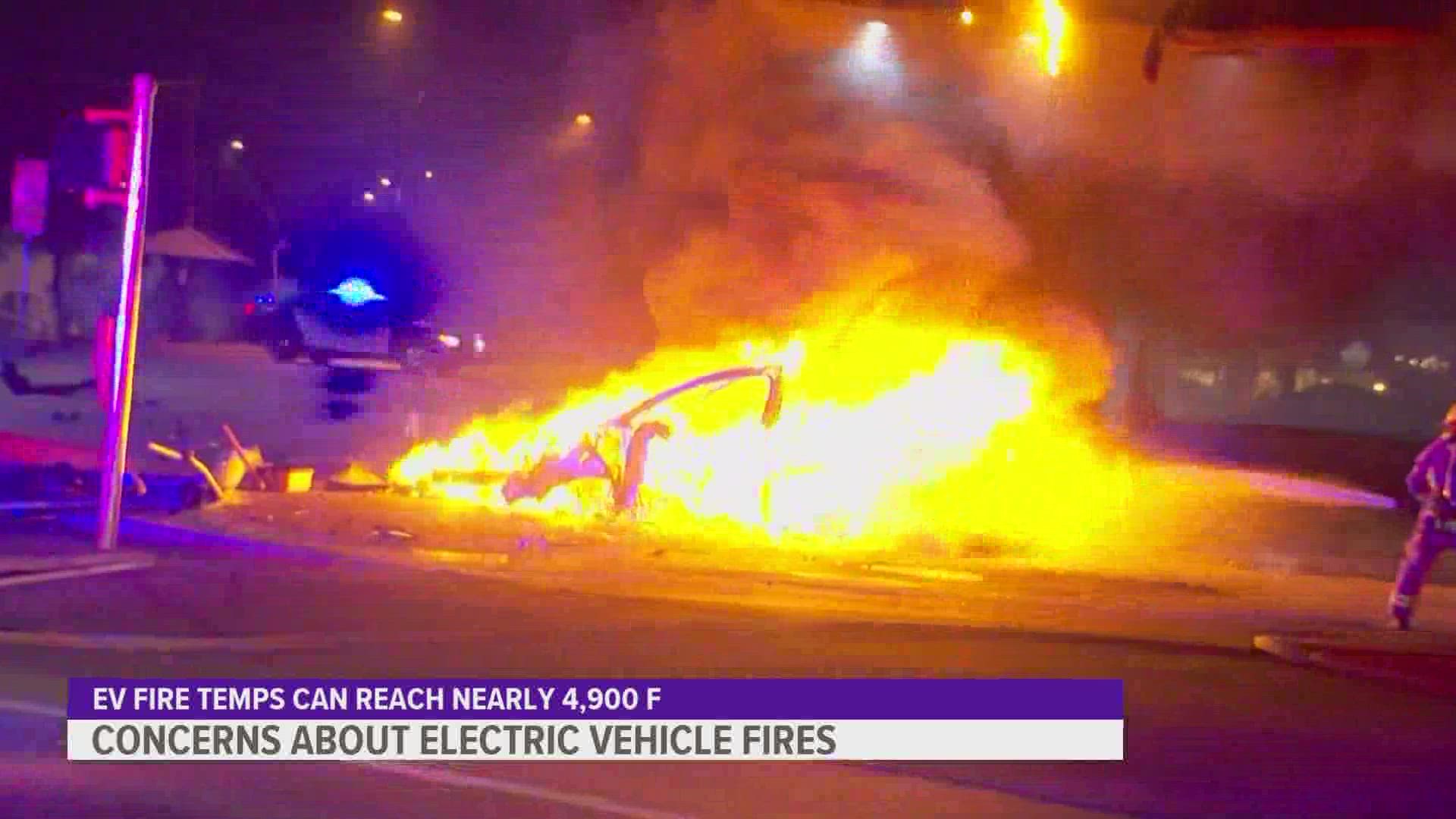NEVADA, Iowa — As more drivers make the jump from gasoline-fueled vehicles to electric ones, firefighters are growing concerned about an alarming trend surrounding them: Putting out a fire in an electric vehicle is a lot less straightforward than you might expect.
The crux of firefighters' worries have to do with the batteries that operate electric vehicles—they're extremely high-voltage and can generate temperatures of nearly 4,900 degrees F when they burn. That means getting that flame under control is no easy task.
"It's kind of changed the game for us, [normally] we can use ultra high pressure and put a car fire out in about 19 seconds," said Raymond Reynolds, director of fire and EMS for Nevada Public Safety. "Well, with an EV car, we're looking at four hours and up to 30,000 gallons of water."
Adding to the headache is the fact that in some cases, electric vehicle batteries can relight hours or days after the original blaze is put out, potentially stretching resources even thinner. It might seem counterintuitive, but sometimes fire crews are actually advised not to put the fire out.
"It's a very difficult problem for us to manage," Reynolds said. "The guidance from the manufacturers is to use lots of water, and some guidance, if the car isn't in a space of concern, that we just let these things burn."
Fortunately, there is some good news. Electric vehicle fires are fairly uncommon overall. Data from the National Transportation Safety Bureau says that EVs are still less likely to catch fire than gas or hybrid cars.
There's two major hazards that can be warning signs for a potential electric vehicle fie—when a battery is overcharged, or when the car is damaged in a crash.
But as technology continues to adapt and innovate, first responders are under a lot of pressure to keep up with all the changes.
"You're gonna see battery banks inside garages that supply power to houses. So if we have a thermal runaway inside the garage that's attached to a house, I don't know that we have a plan for that," Reynolds said.

